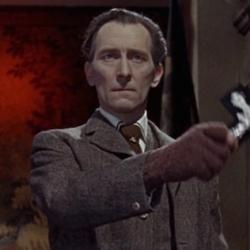Reflecting on the retirement of actor Daniel Day-Lewis at Variety, Owen Gleiberman suggests that “What retired . . . is something that’s waning in the culture: the belief in acting as a highly sculpted soul transplant—as the mystical spirit of inhabitation.”
He fills out the point by situating Day-Lewis within two 20th-century traditions of acting. Working on the first theory. Lawrence Olivier “built his characters from the outside in, manipulating his look, his voice, his posture, his gestures. Playing his own face and body like a Stradivarius, he was a genius chameleon who seemed, from role to role, to alter his very being.”
Marlon Brando “our bard of the Method, of confessional spontaneous expression” sometimes imitated Olivier’s method, but “the essence of his genius is that he harnessed the power of pure being.” He worked from inside out, trying to capture the titanic spirit of a character in order to bring it into flesh.
Day-Lewis wasn’t either. Rather, “he was always seismically both: an actor of Brandoesque ferocity who fused that quality with the devotion to sheer otherness of an Olivier. That’s why his borderline loopy immersion process is so integral to who he is: It’s doing what Olivier did — becoming another person — brought off with Brando’s wild-dog existential intensity.”













